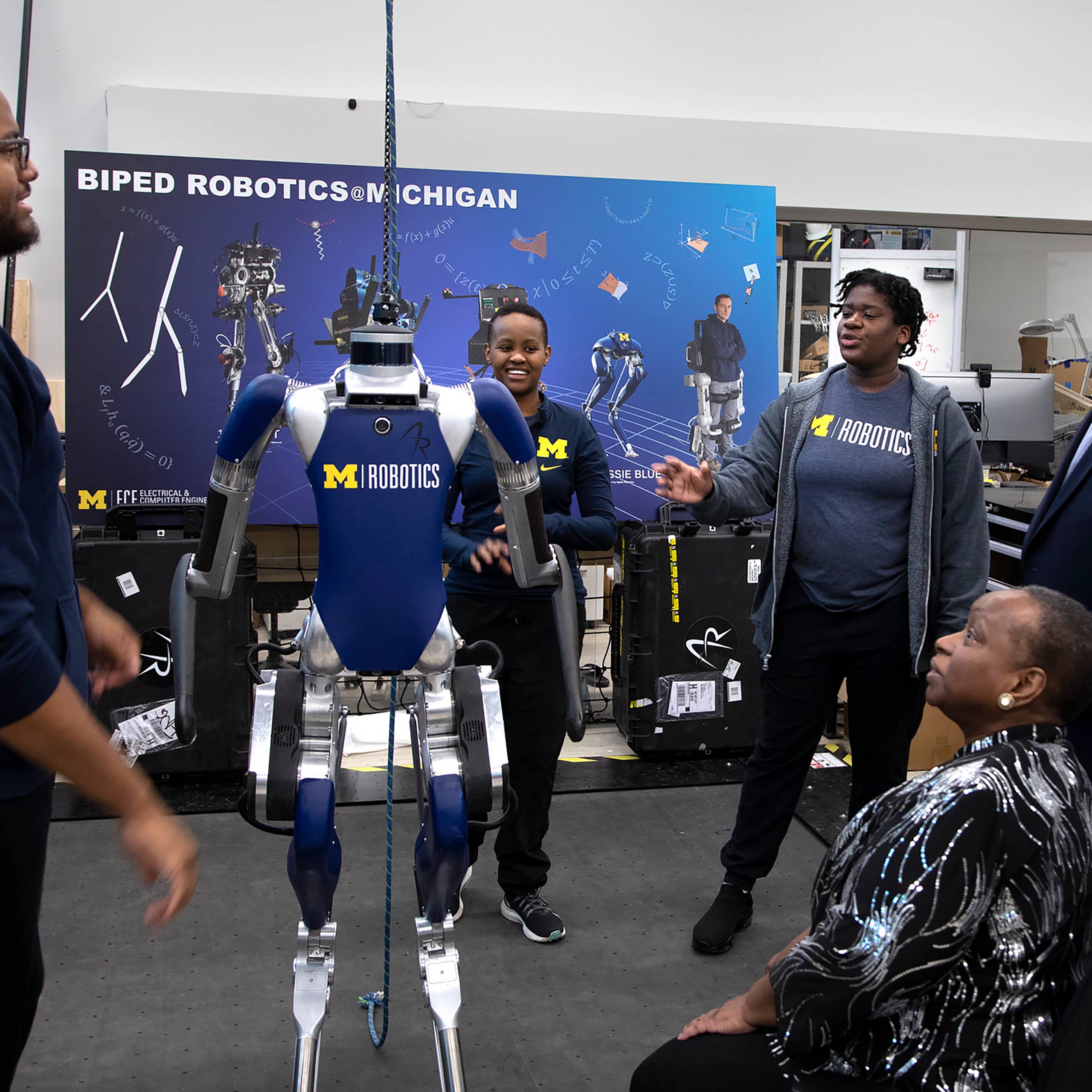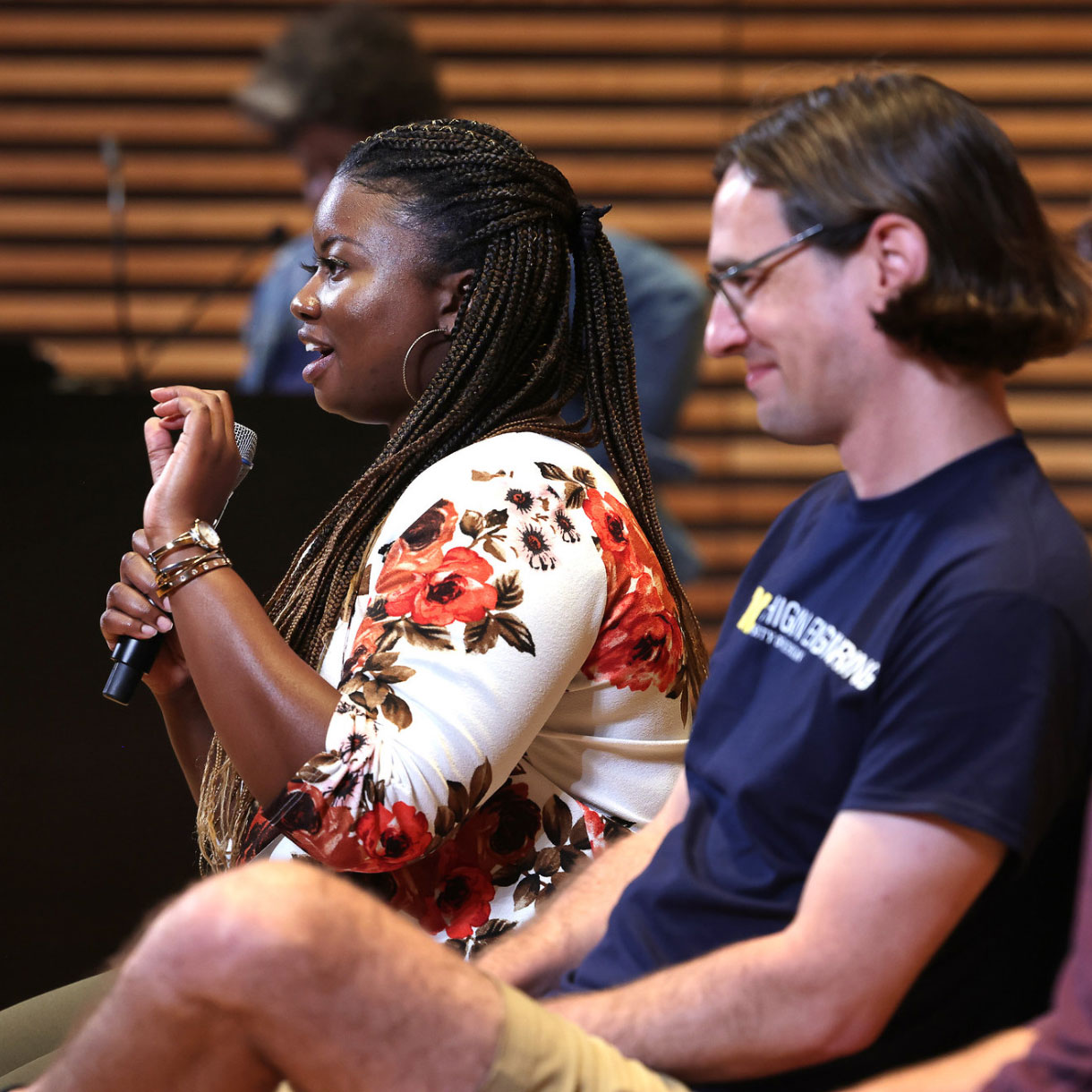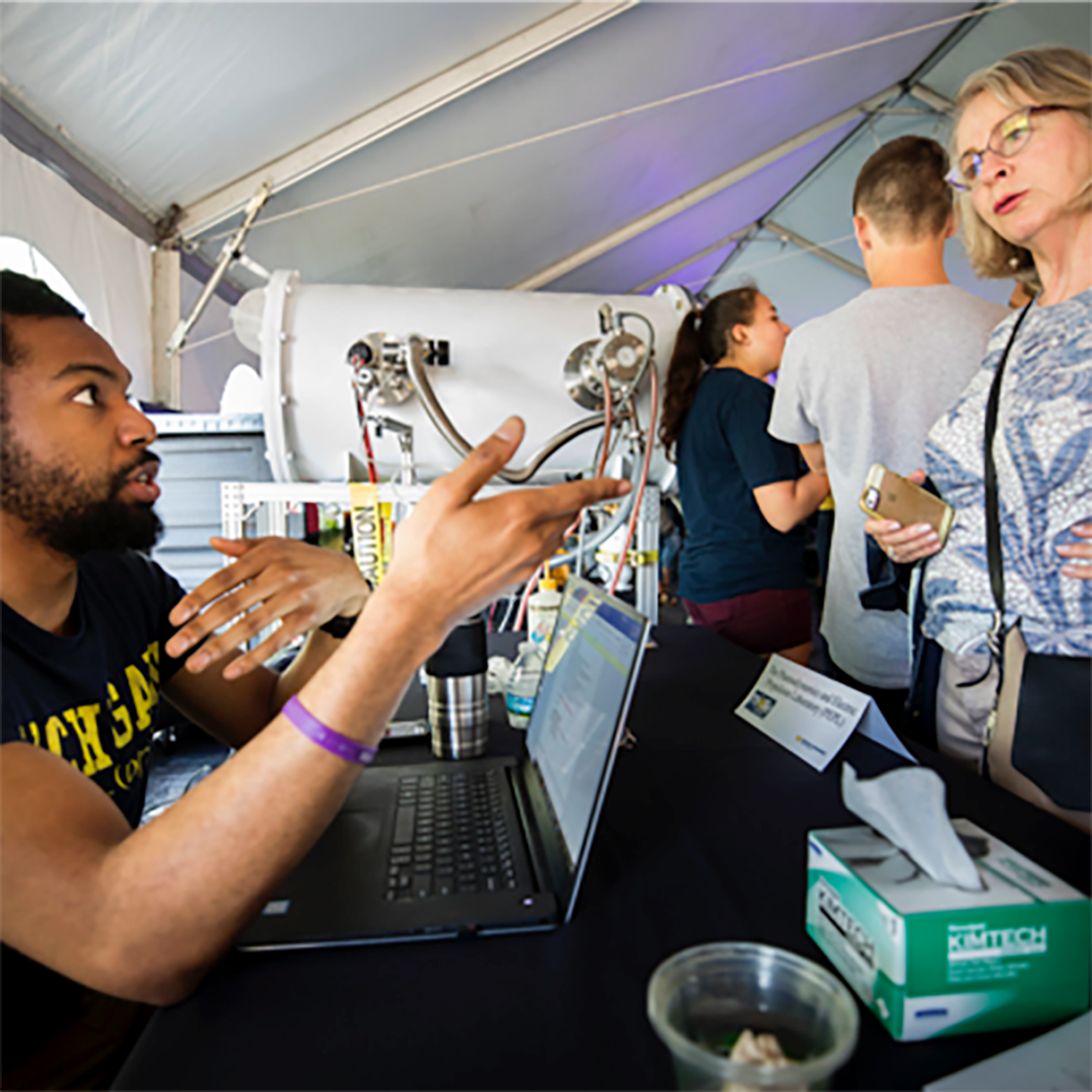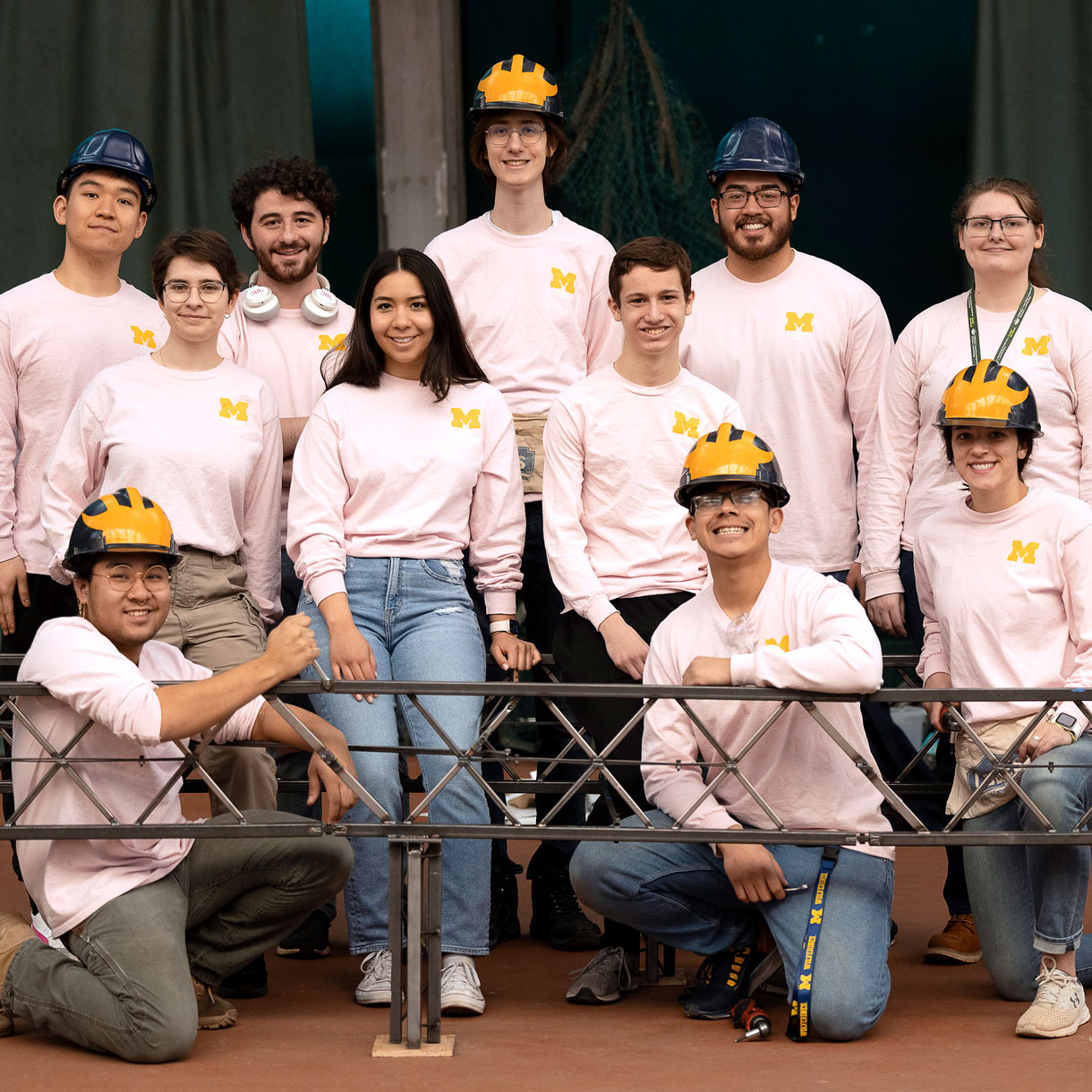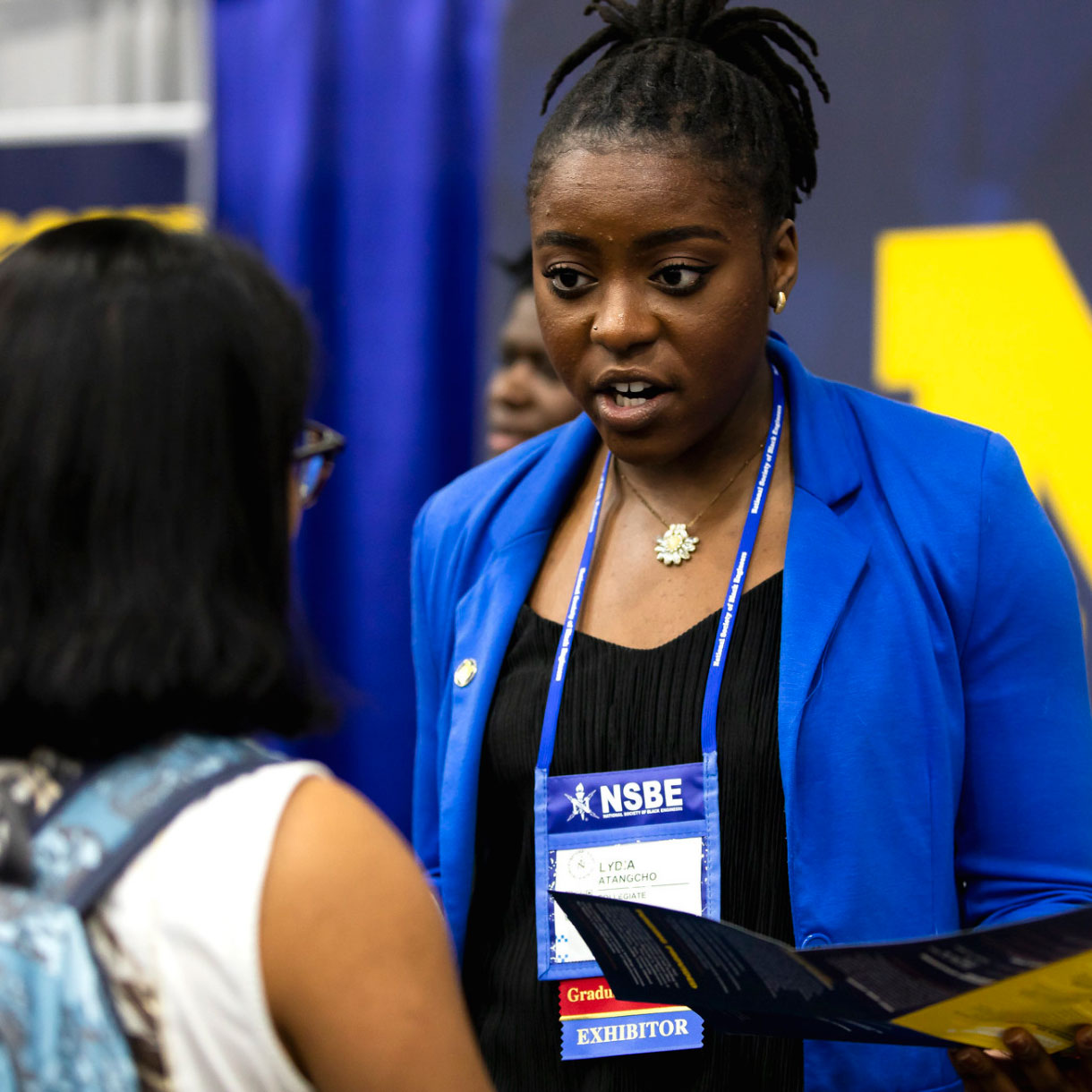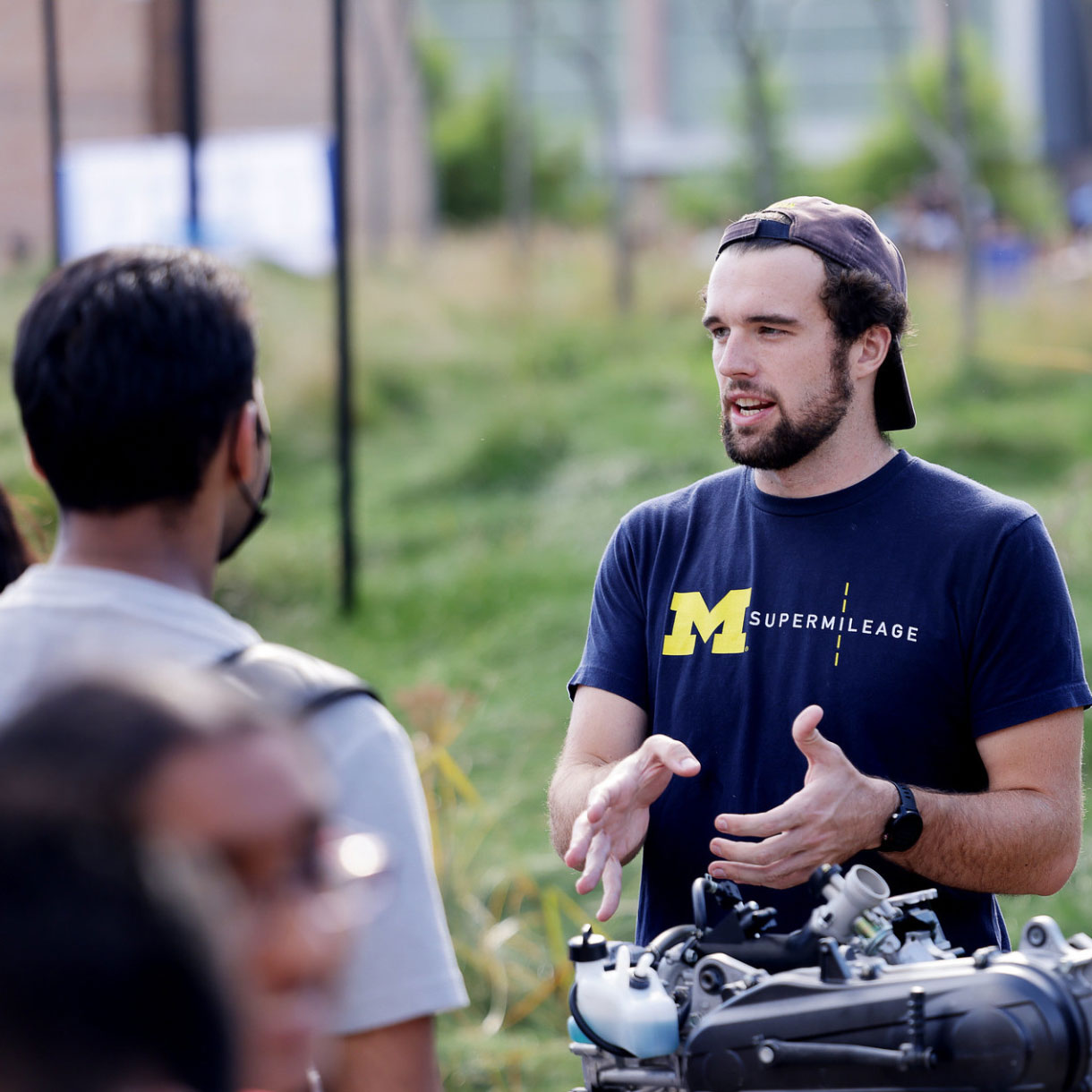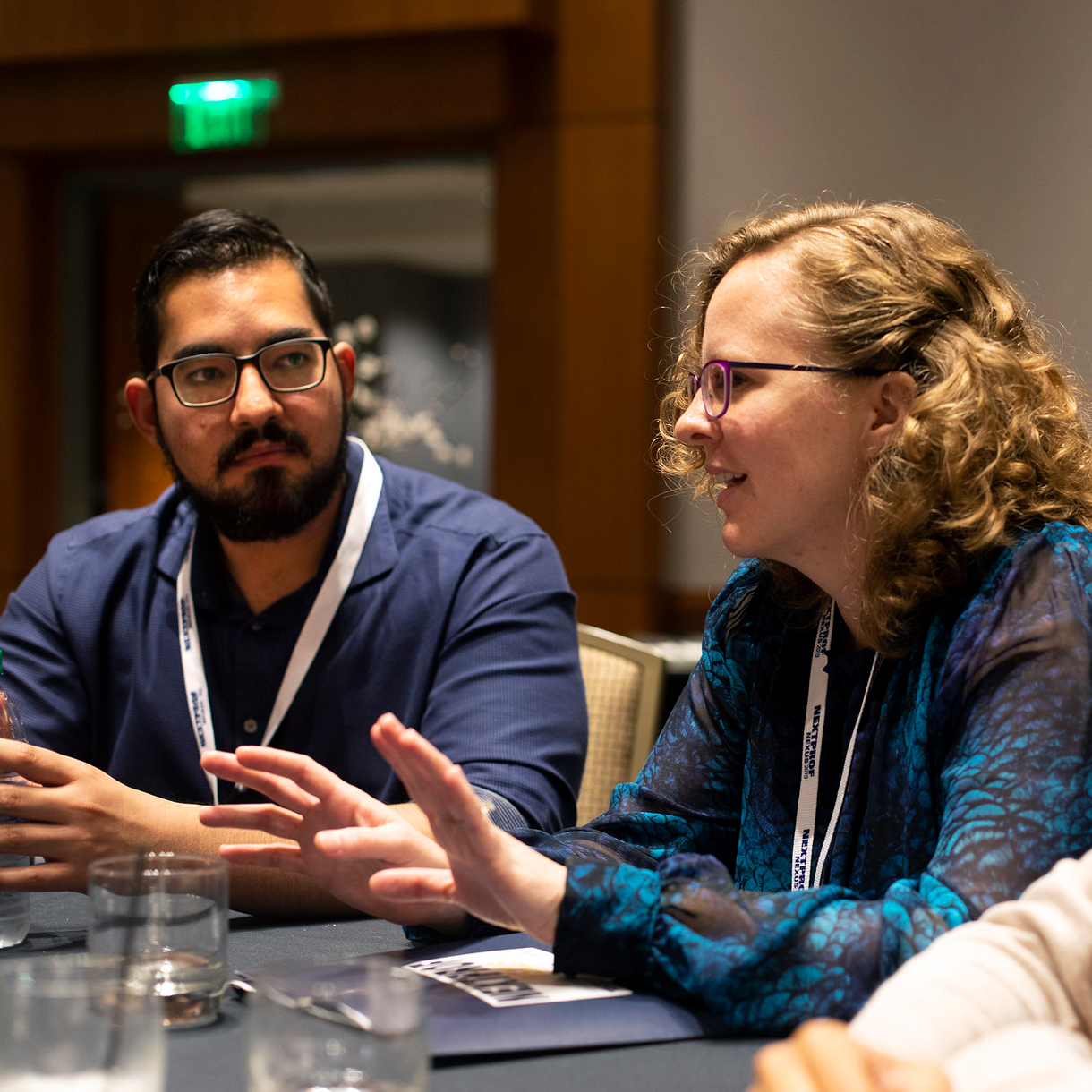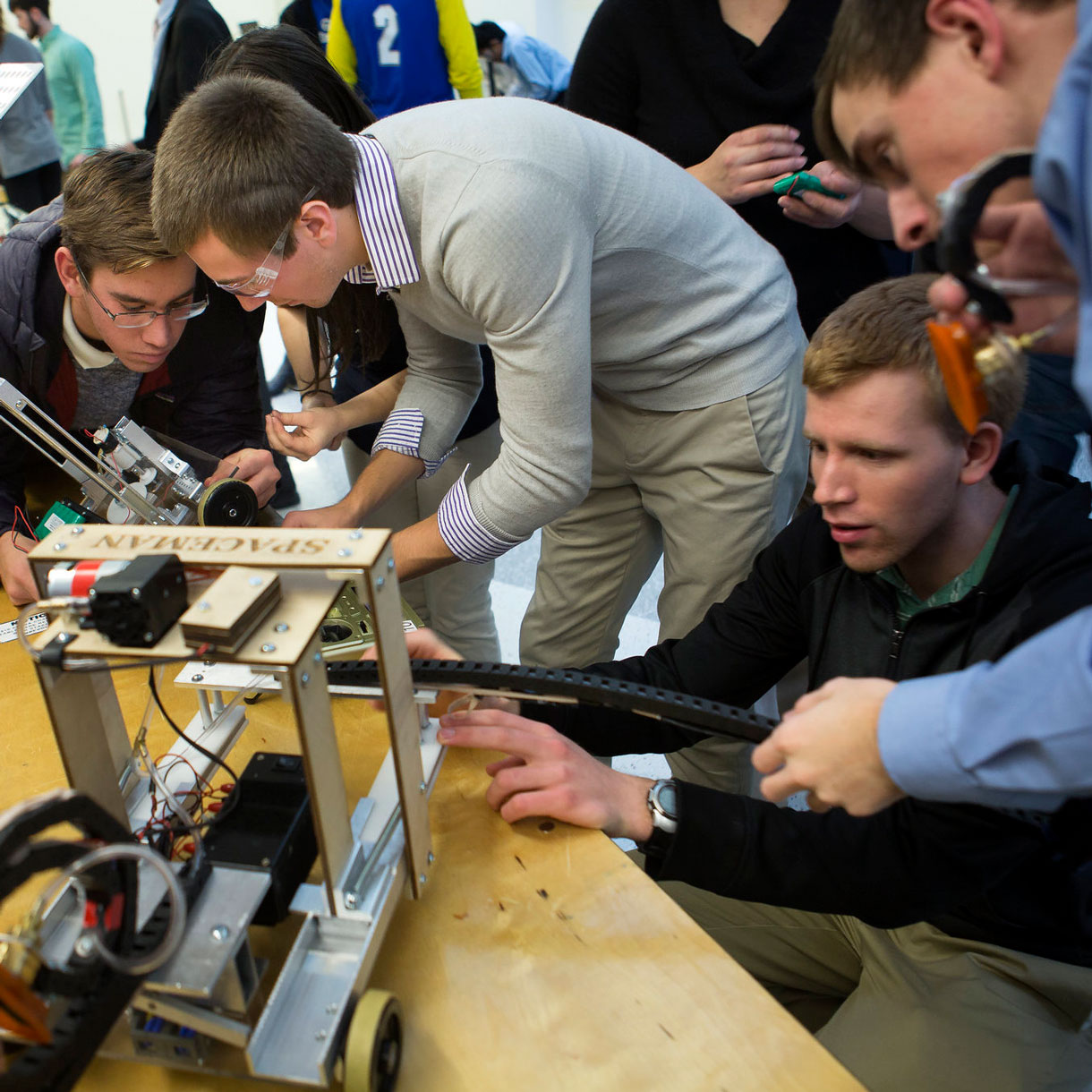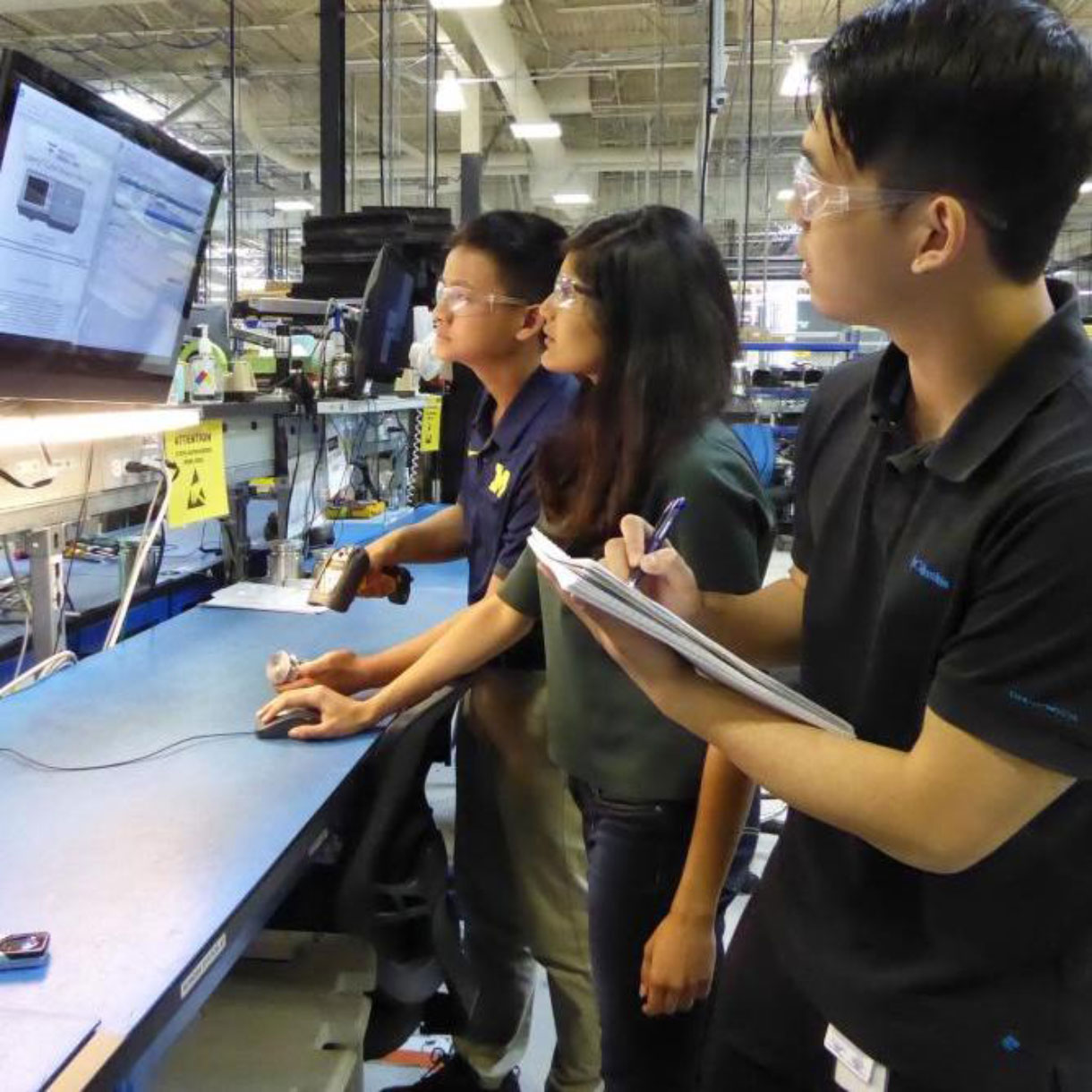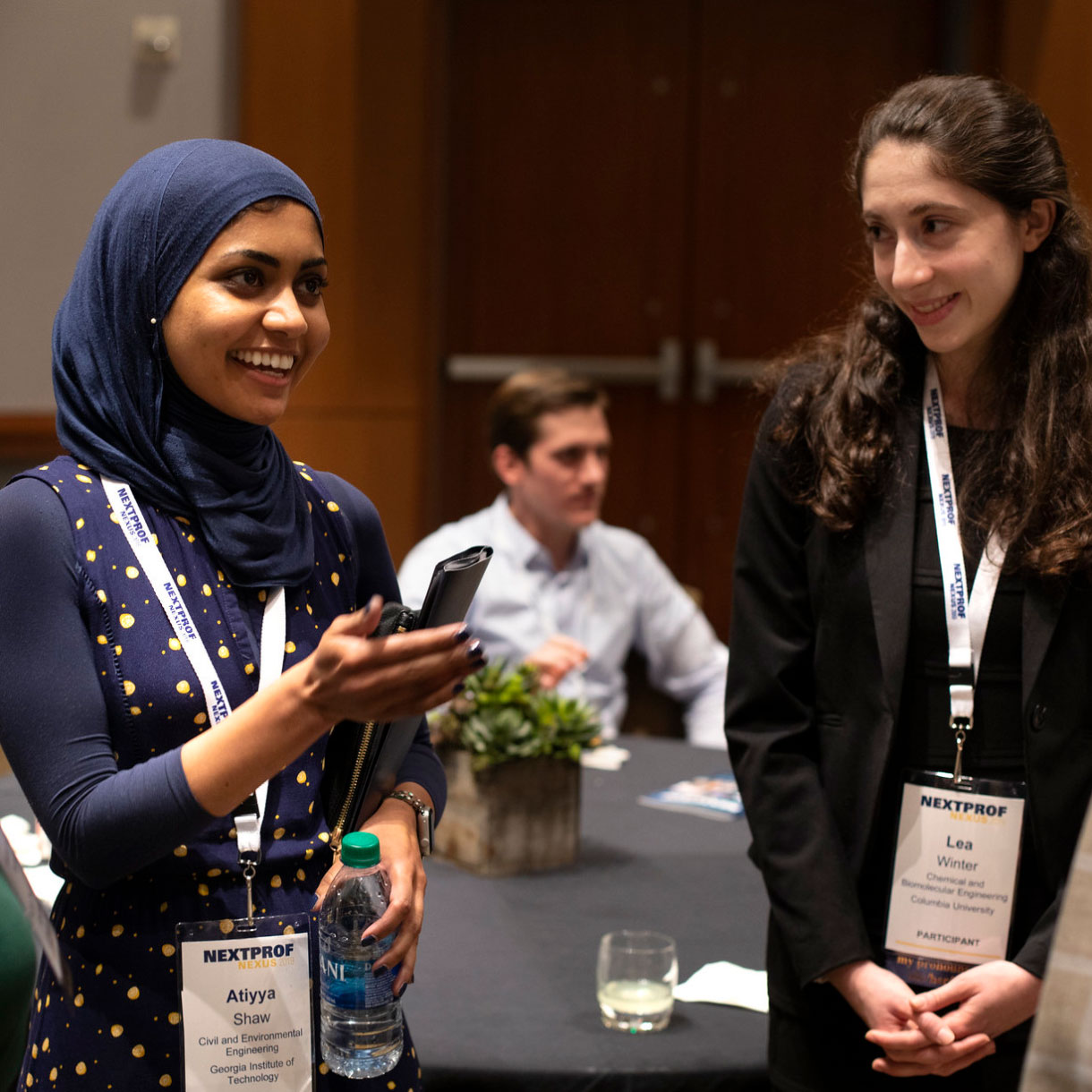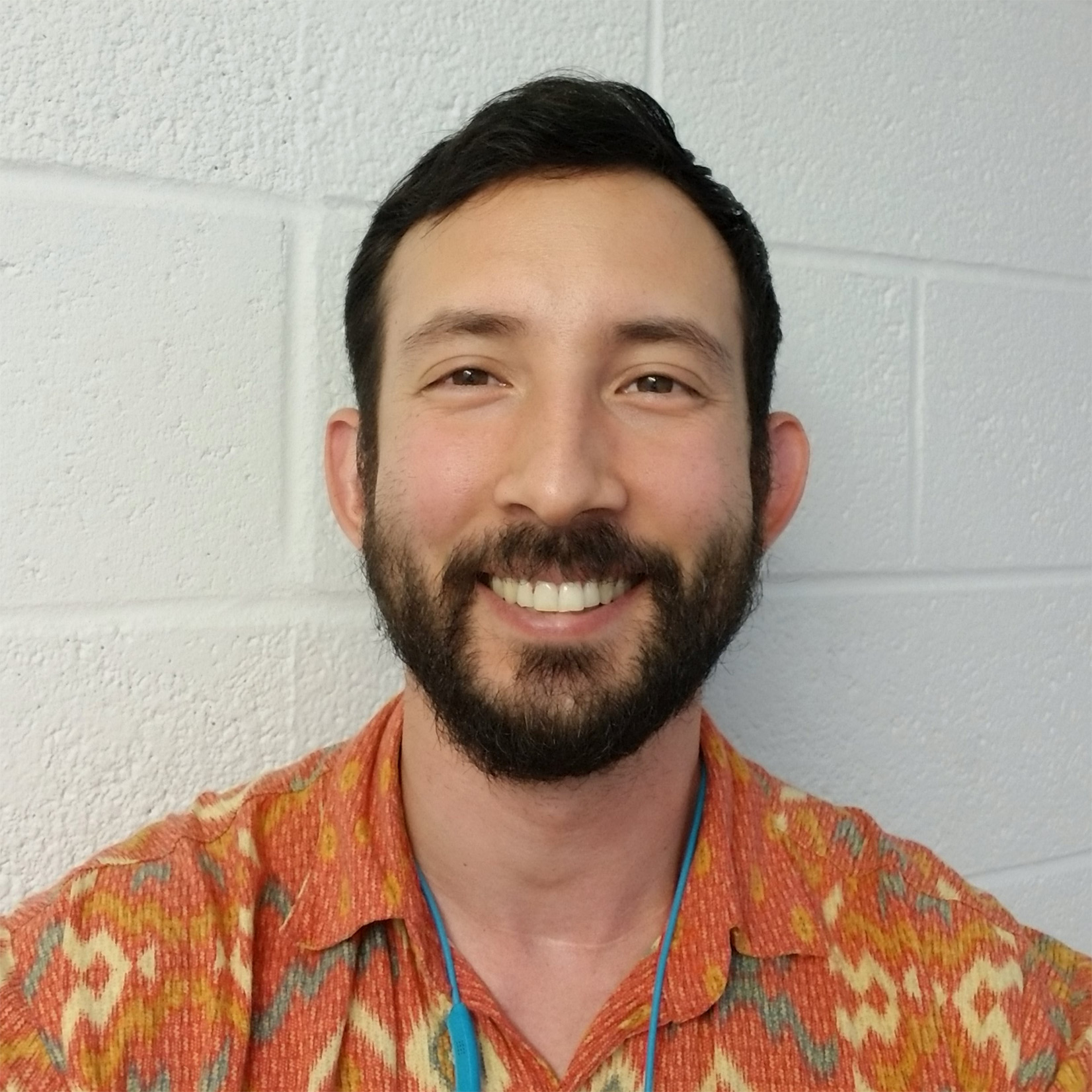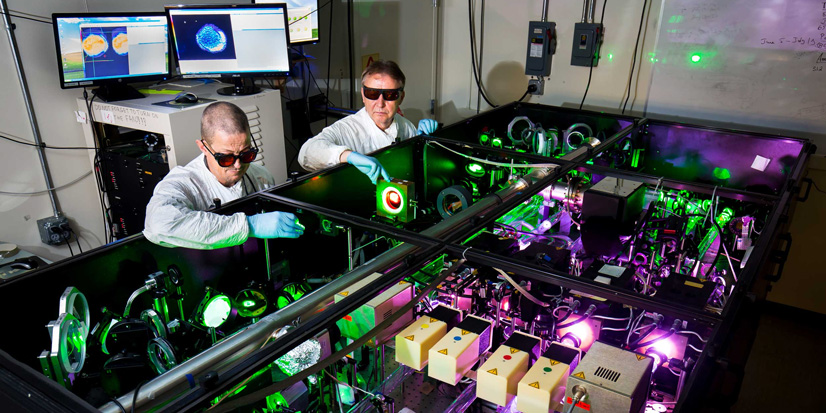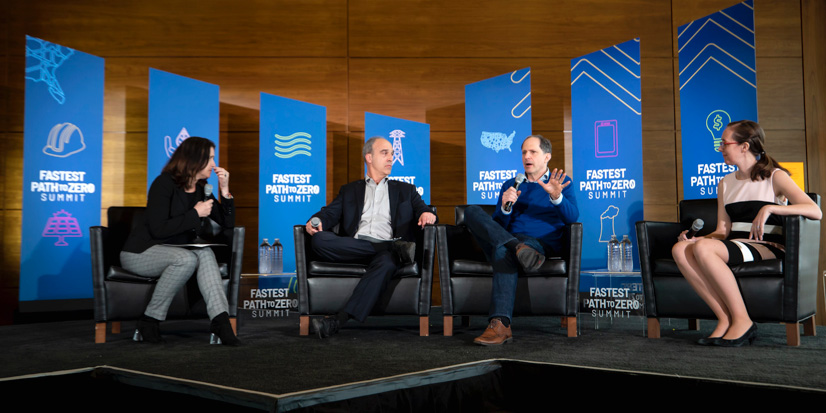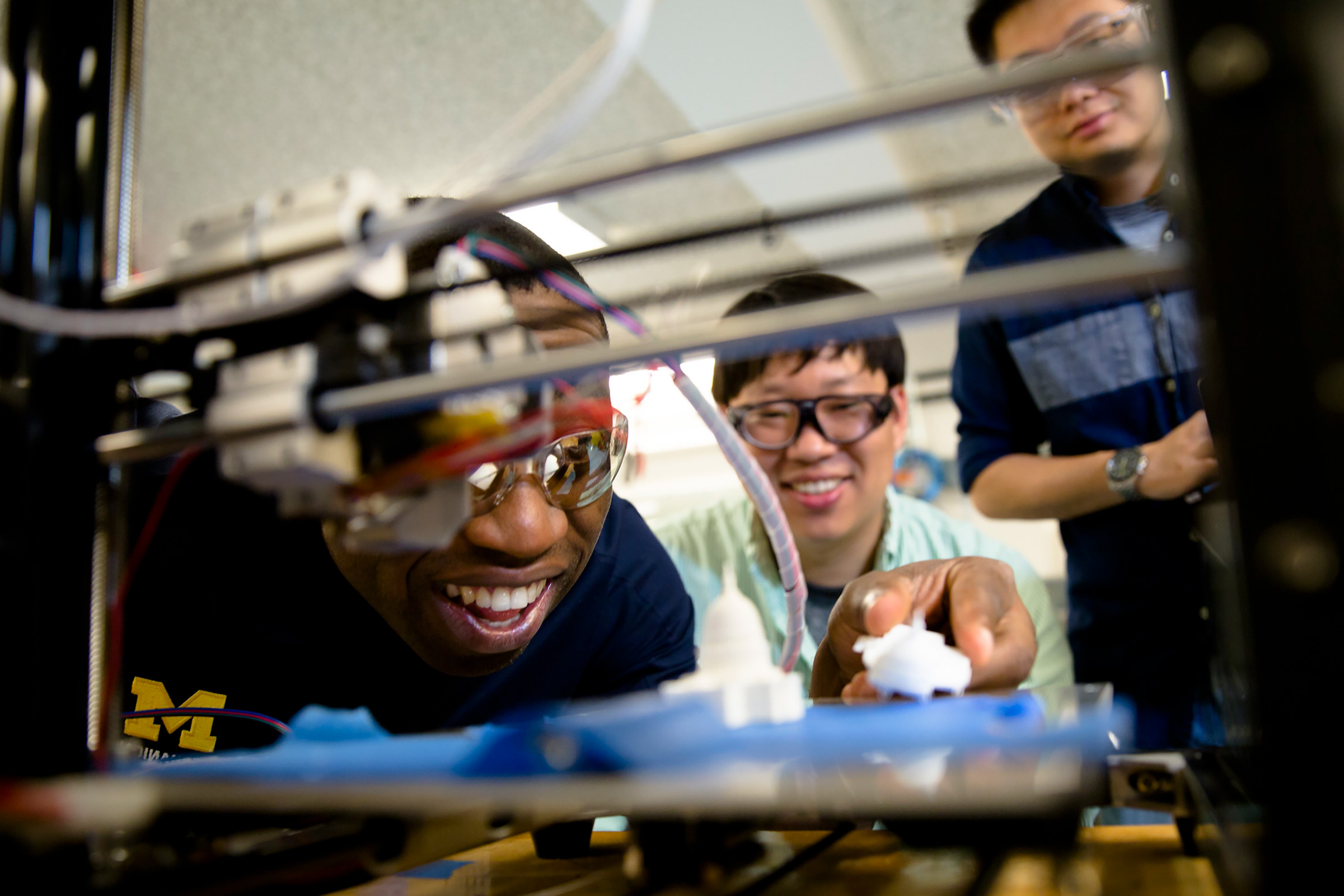
Ready to take the next step?
As a Michigan Engineering Ph.D. student, you’ll have the opportunity to build a one-of-a-kind educational experience centered around your research interests.
The first step as a prospective student is to find your passion and build your application. Use this section to learn about everything from funding opportunities to the kinds of world-changing research you can pursue as a Michigan Engineering doctoral student.
Please note that Michigan Engineering is no longer requiring the GRE as part of the Ph.D. application process. Additionally, students with financial need may be eligible for an application fee waiver. Click this link to see if you qualify before November 30, 2022 @ 11:59 PM EST*.
*Biomedical Engineering, Chemical Engineering, Mechanical Engineering, & Robotics deadline for application fee waivers: November 14, 2022 @ 11:59 PM EST. Please note that it will take up to 2 business weeks to receive a decision. Please plan accordingly.
Research &
Advisors
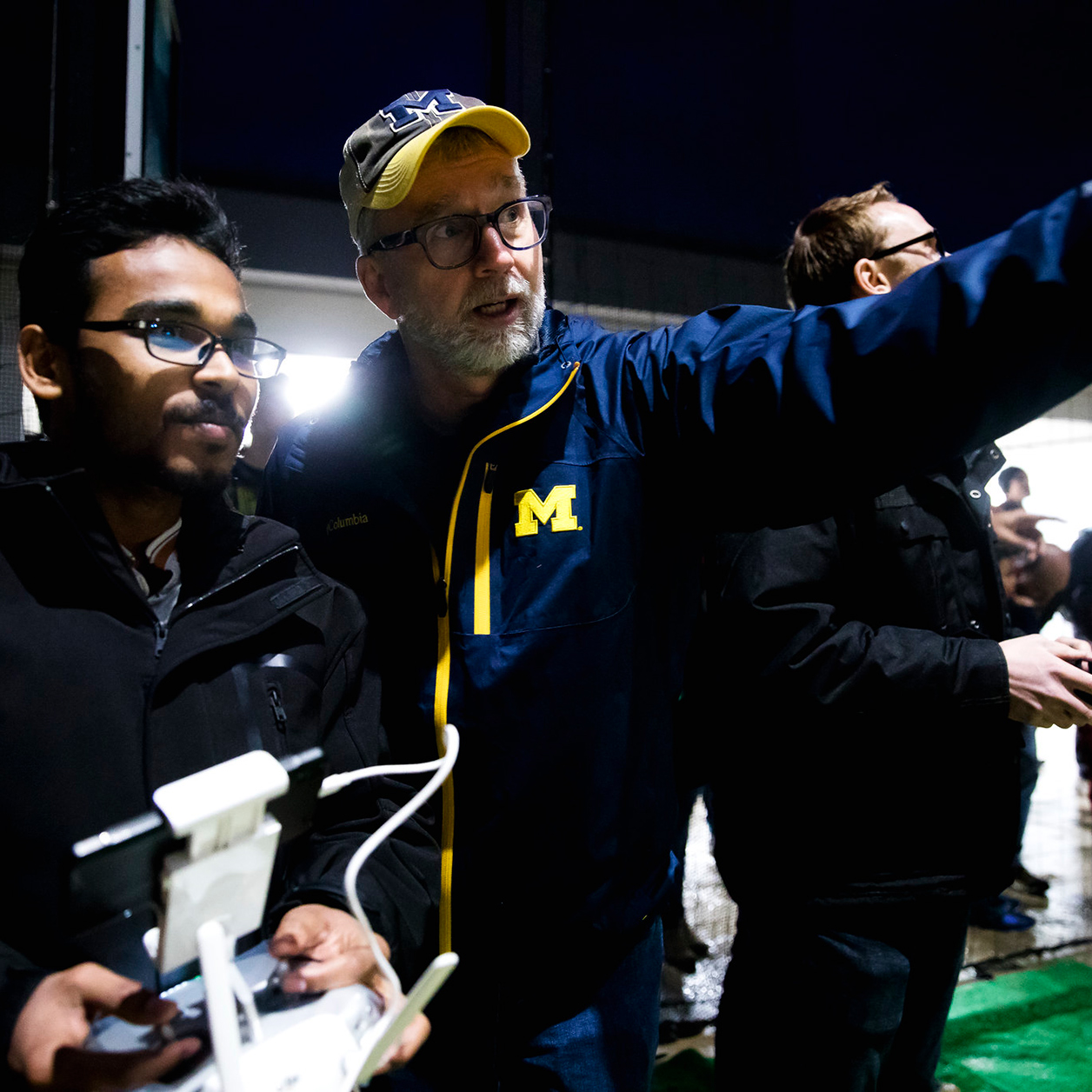
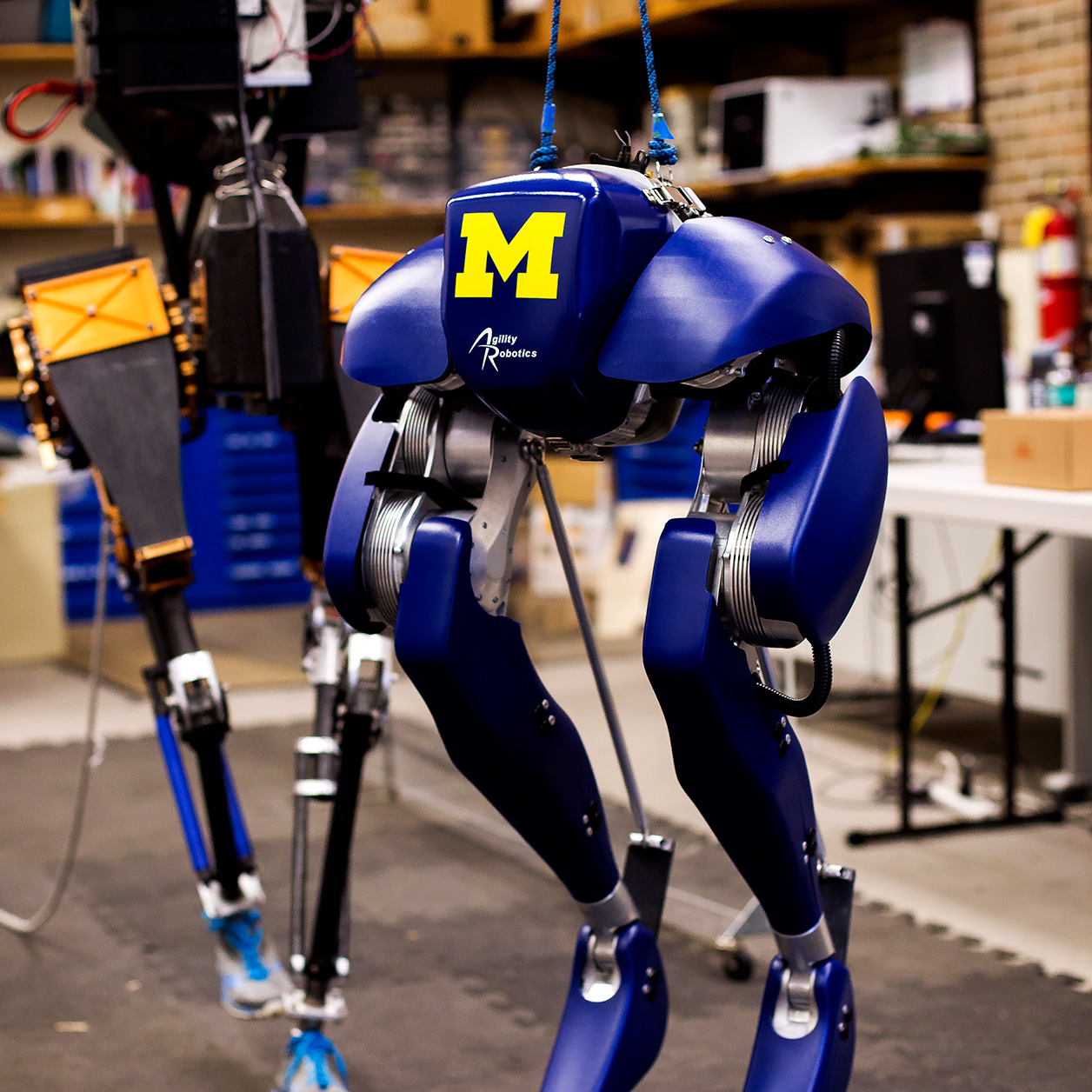
What’s your area of interest?
Do you know what area you are interested in exploring? Below you can search for faculty working in research areas that interest you. You can reach out to them to learn more as well. There are two ways to begin your search:
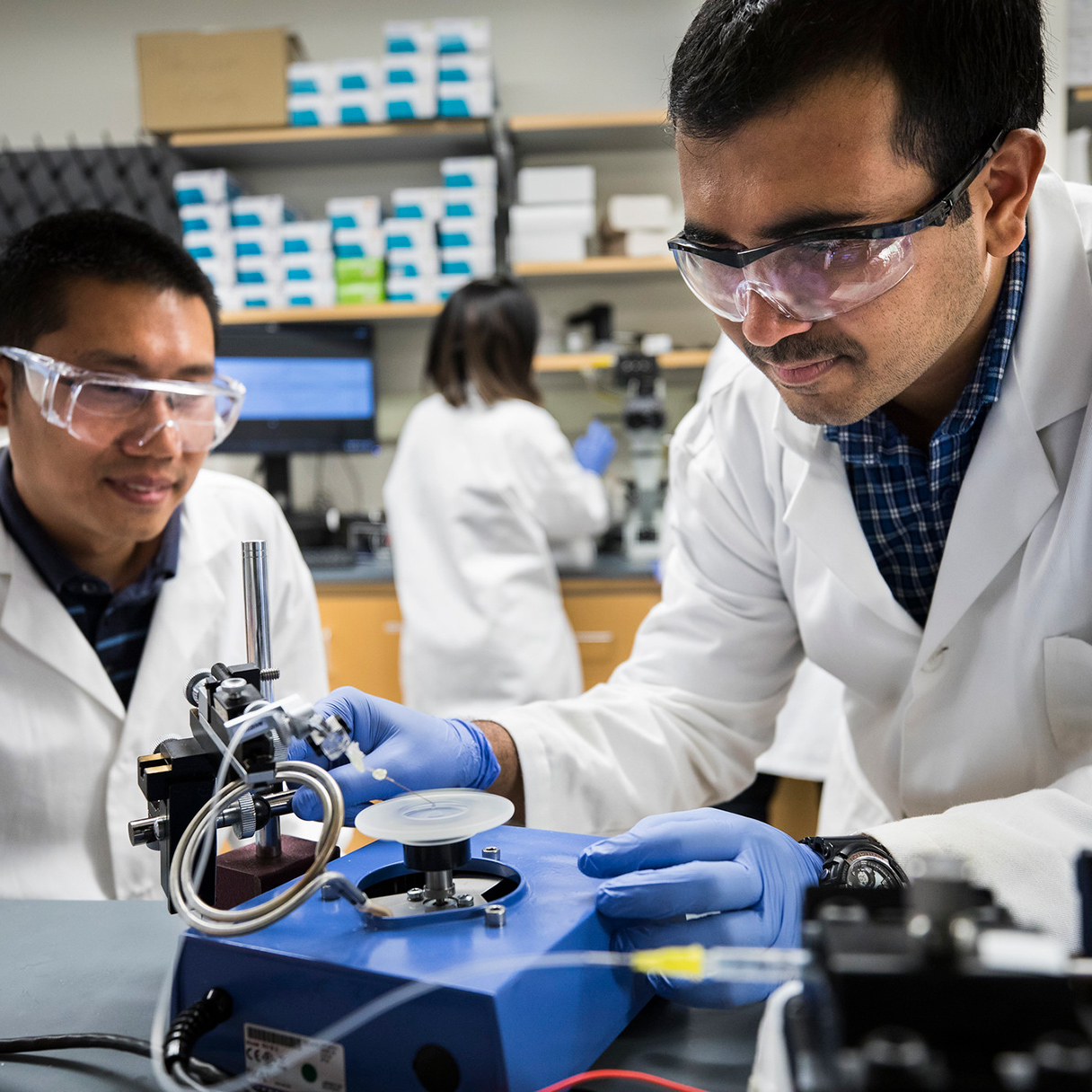
Curated links to faculty in each department, filterable by general research categories. Click the department links to see the main research areas.
- Aerospace Engineering
- Applied Physics
- Biomedical Engineering
- Chemical Engineering
- Civil & Environmental Engineering
- Climate and Space Sciences & Engineering
- Computer Science & Engineering
- Design Science
- Electrical and Computer Engineering
- Engineering Education Research
- Industrial & Operations Engineering
- Macromolecular Science and Engineering
- Manufacturing
- Materials Science & Engineering
- Mechanical Engineering
- Naval Architecture & Marine Engineering
- Nuclear Engineering & Radiological Sciences
- Robotics
- Scientific Computing
- U-M Transportation Research Institute (UMTRI)

Because research can span many departments and disciplines, use U-M’s experts.umich.edu database to search based on topics that most interest you. This site will help to identify faculty members and learn more about their work through research publications and websites.
U-M Experts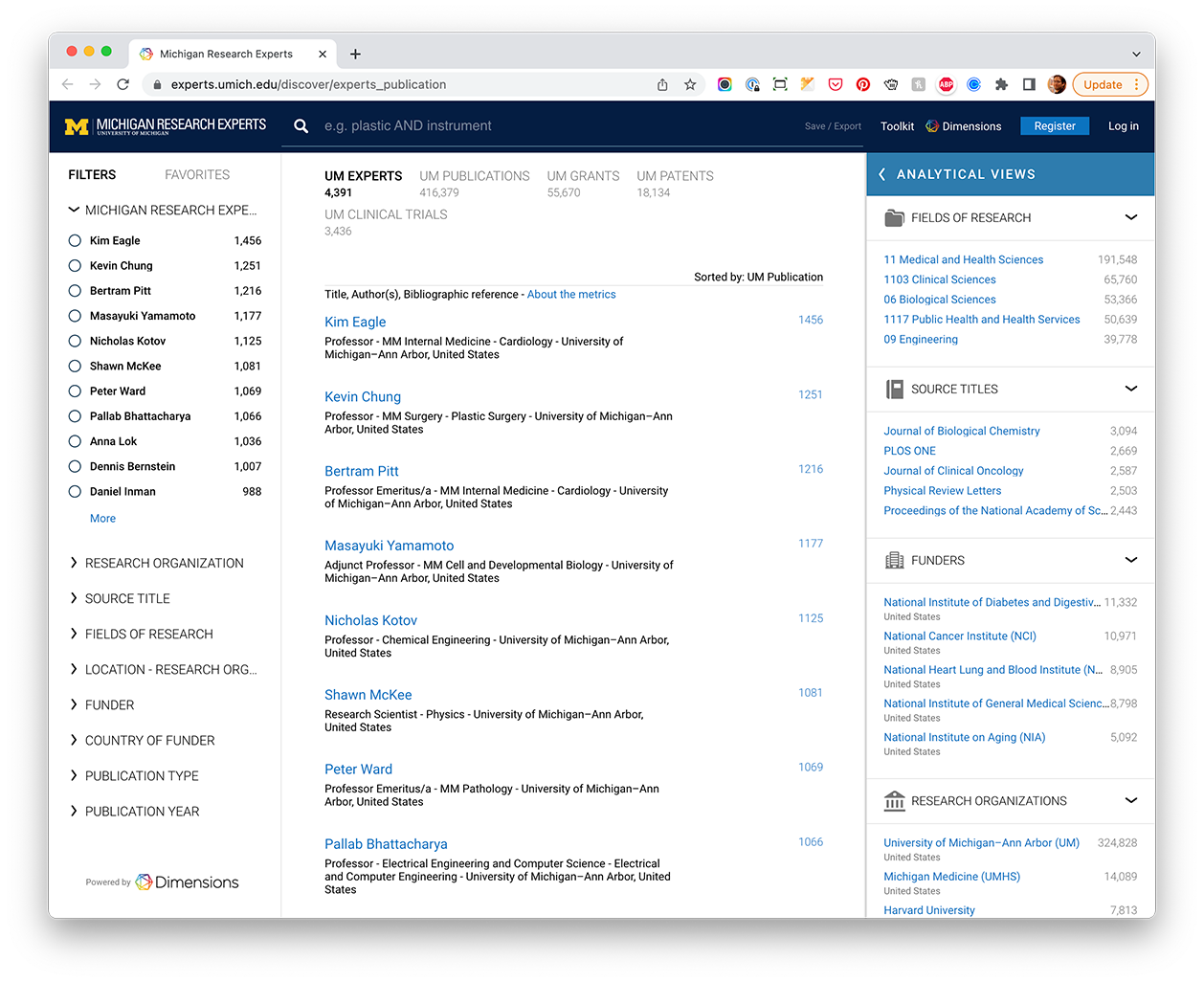
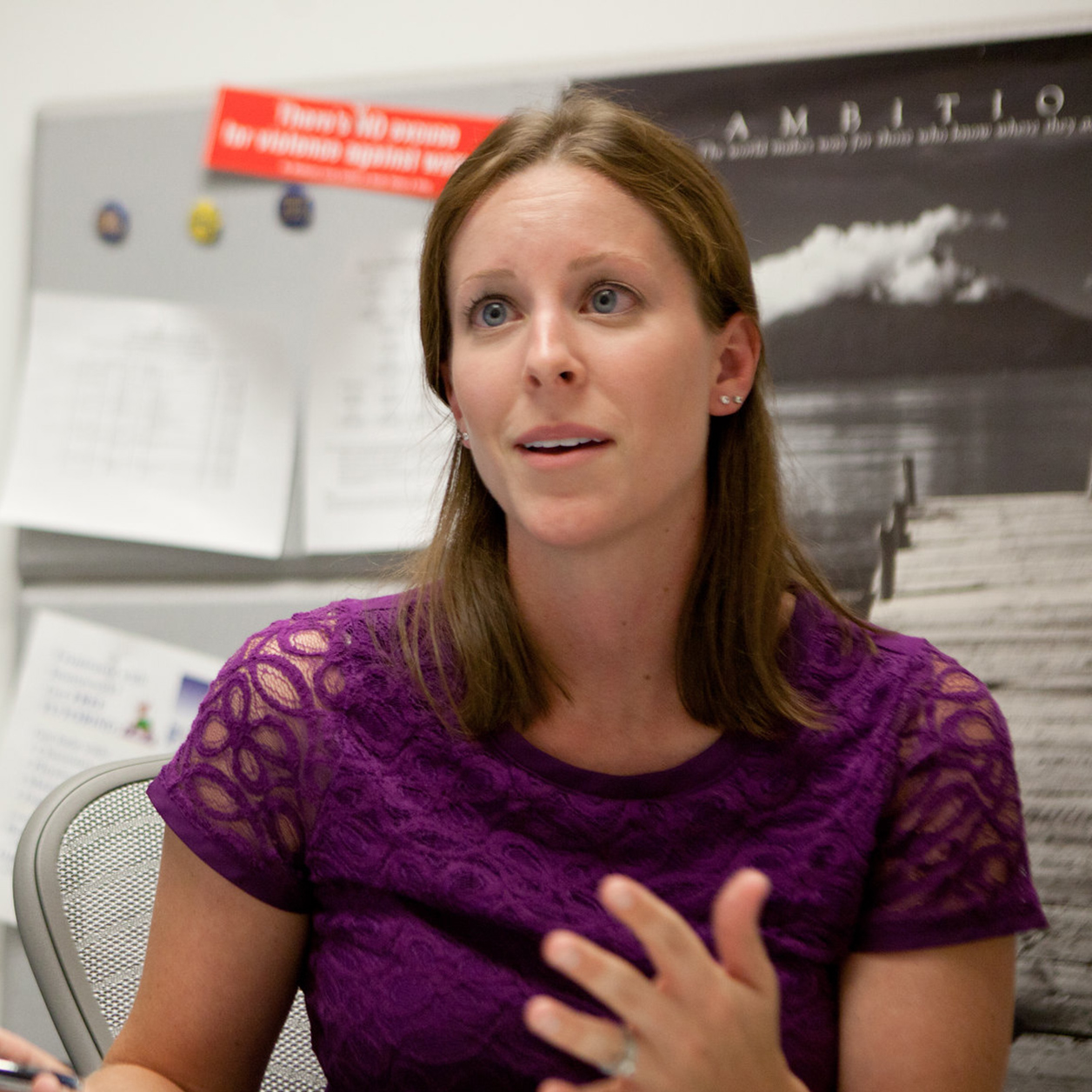
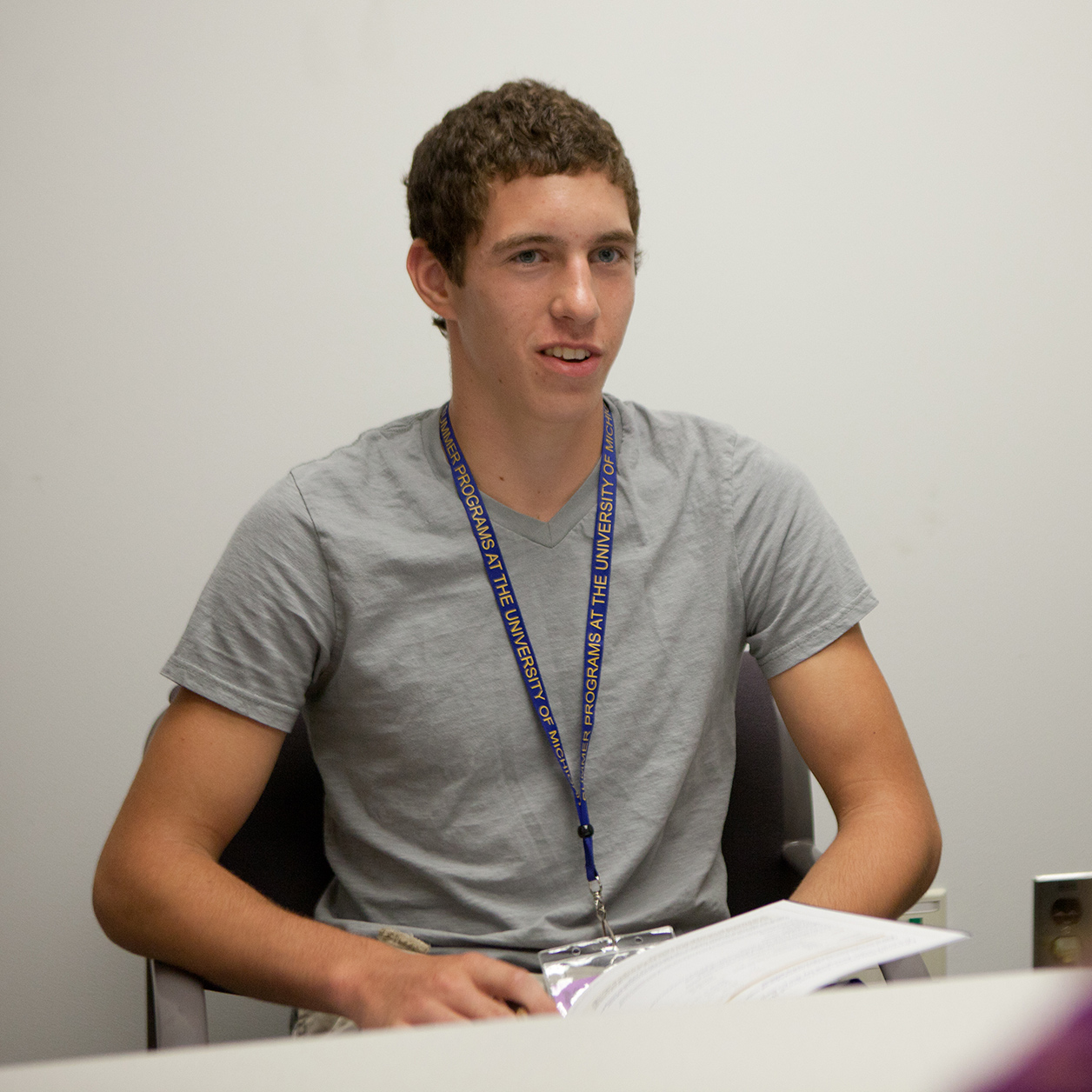
Questions for your potential research advisor(s)
Talking with a potential advisor may seem overwhelming and intimidating. To help initiate conversation and get all your questions answered, please feel free to utilize the questions below. Of course, please feel free to ask your own questions as well. Faculty and staff are here to help make your journey as smooth as possible.
- How many graduate students are you currently advising?
- How many graduate students have graduated under your advisement in the last five years? And where are they now?
- How long do your graduate students usually take to finish?
- Is there, or how much funding is available for your students?
- What are the requirements for this funding? I.e. teaching requirements?
- Do you have specific research in mind for your new Ph.D. student(s)?
- How many of your students have gone into academia vs industry?
Success & Realistic Expectations
Understanding where your academic goals will fit in at U-M
Earning a Ph.D. is extremely rewarding, but not a simple undertaking. There is a big difference between taking courses as an undergrad and creating significant and original research as a Ph.D. There are many things to consider before applying for a Ph.D.

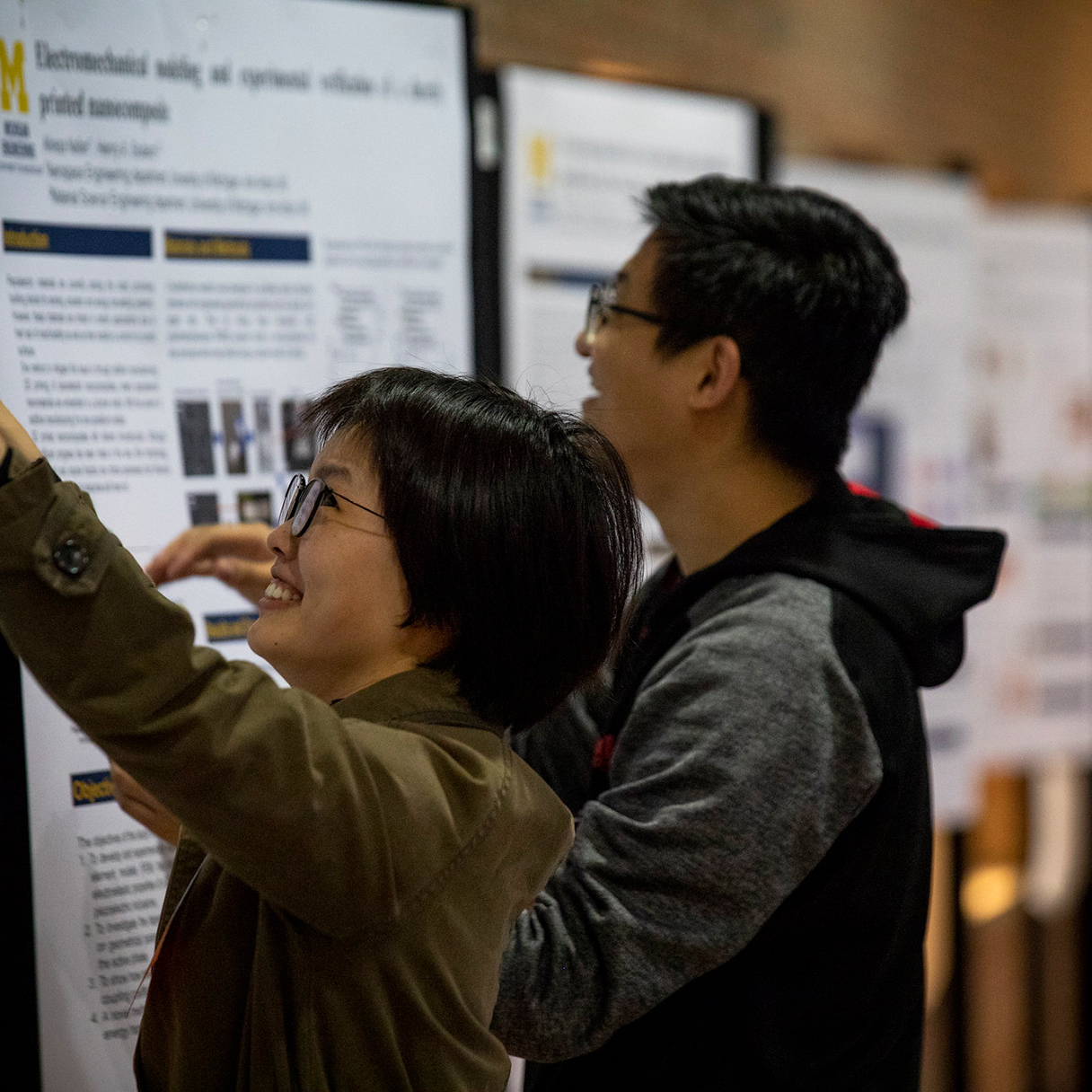
-
PASSION

about the subject matter and have a deep interest level
-
ENJOYMENT
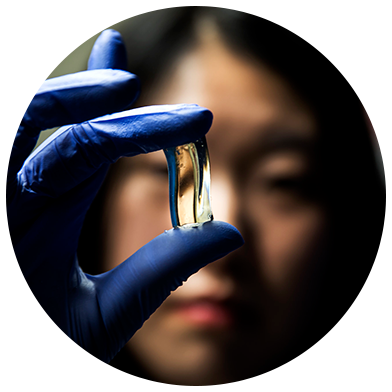
in doing research
-
ACADEMIA & RESEARCH CAREER
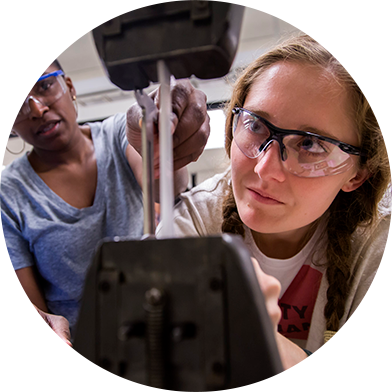
as a requisite to entering these fields
Earning a Ph.D. deserves some serious thought and realistic expectations. Here are a few things to consider if you decide to take this journey.
- Most research is done independently and requires a lot of internal motivation.
- Having passion and drive for research is a must-have to be successful.
- Experimentation, feedback, and failure will all be a part of your research. So an open mind and the ability to receive constructive feedback, and not being afraid to fail will be necessary to achieve success.
Get Answers to Your Questions
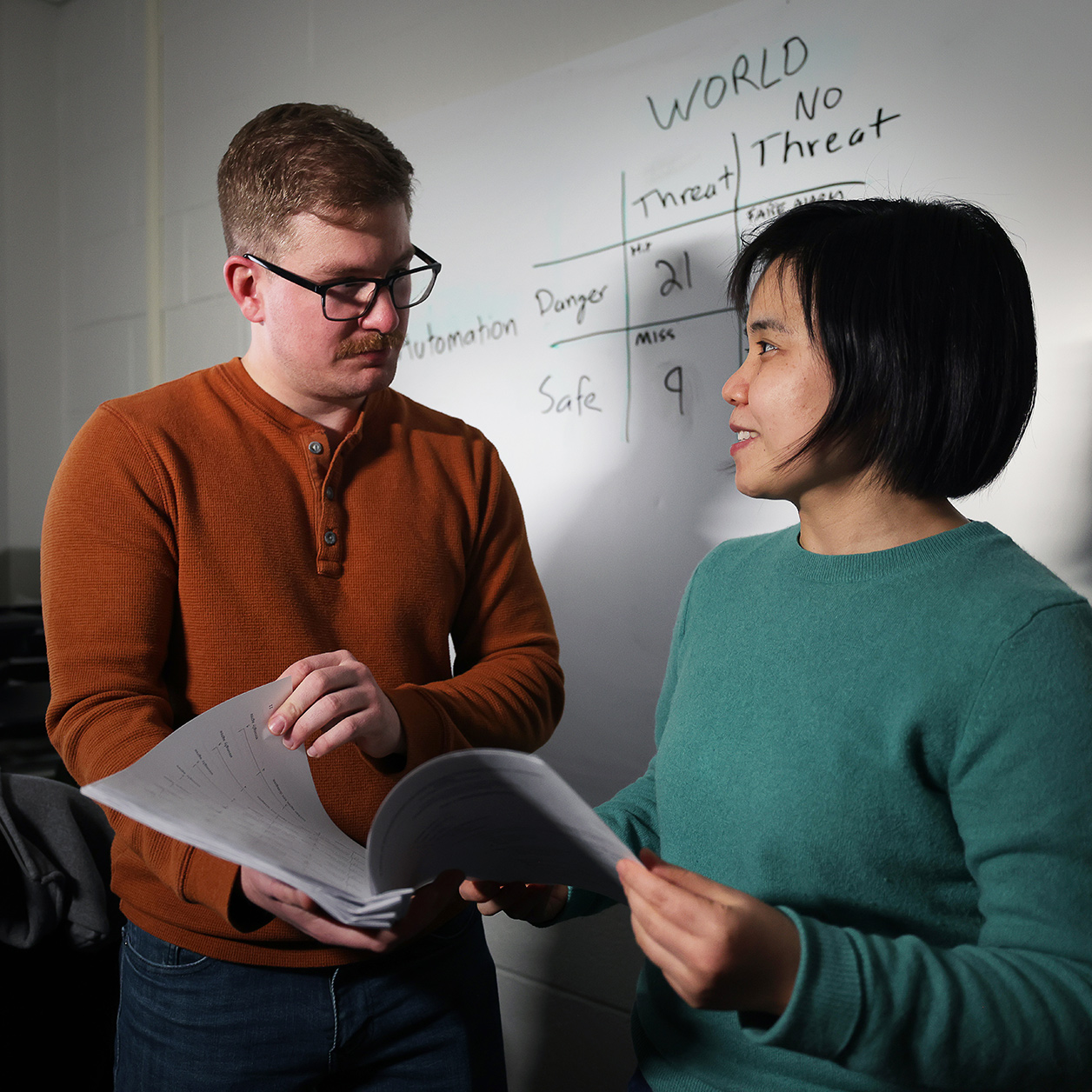
Graduate Coordinator Contacts
Message a Graduate Coordinator within your area of interest with specific questions surrounding your area of interest.
For general college admission questions contact coe-adgpe-rr@umich.edu.
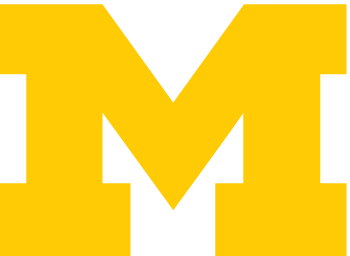
Mirko Gamba, Grad Chair & Master’s Chair
Aerospace Engineering
mirkog@umich.edu


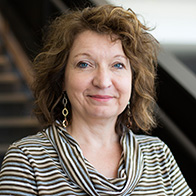



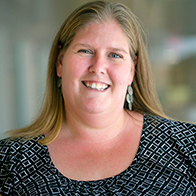
Kristen Thornton
Electrical and Computer Engineering, Engineering Education Research

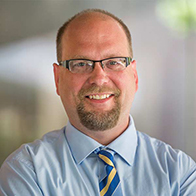

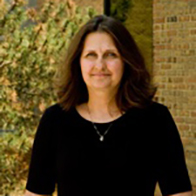
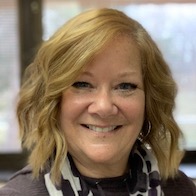
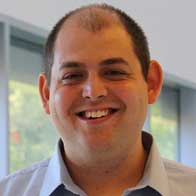
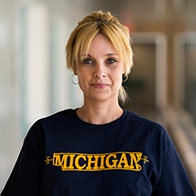
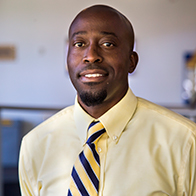
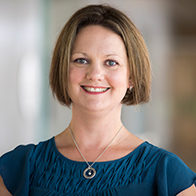

Our graduate program coordinators have been immensely helpful during my entire time in graduate school. They are always available and eager to answer students’ questions and assist in navigating important program deadlines and requirements. Overall, they genuinely care about the success of students and help foster a supportive environment for graduate studies in our department.
Laura B. Andre, Ph.D Postdoctoral Researcher, Electrical Engineering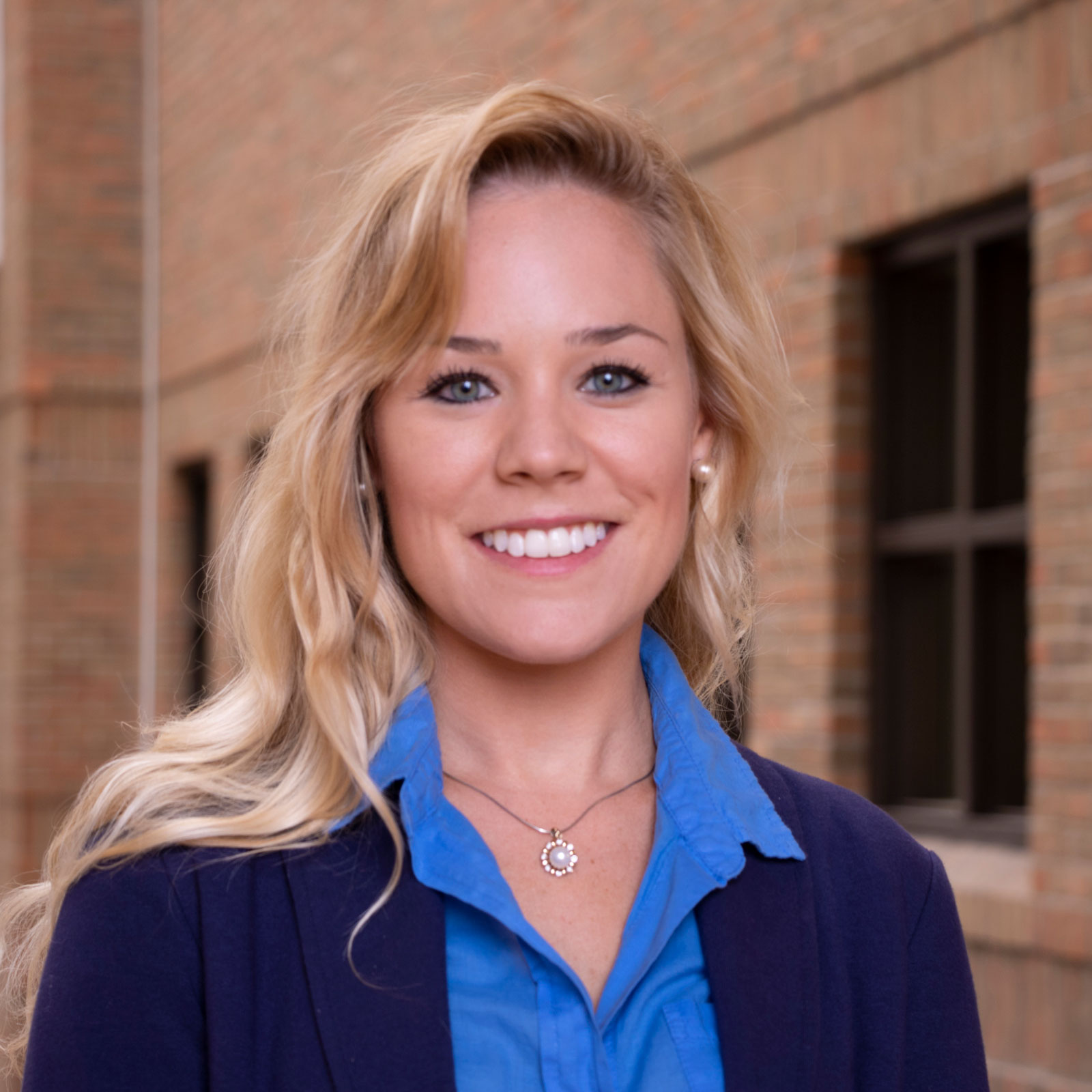
Timeline
Here is a very helpful timeline of what you can expect as you go through the process of gaining admission to the Ph.D. program.Funding Model
All Ph.D.s are fully funded including a tuition waiver, monthly living stipend, and health insurance.
Talk with your advisor to fully understand the expectations associated with your funding.
RESOURCES
AVAILABLE
Apply
Most Ph.D. applications are submitted to Rackham Graduate School where the admissions process is managed as a team with the colleges and departments.* The requirements for each department’s program may vary, therefore refer to the guidelines posted on the department’s website.
You can find help for preparing your application, and tips for what to do after you’ve been accepted on the Rackham Admissions site.
*The only doctoral program not administered by Rackham is the Doctor of Engineering in Manufacturing. Learn more and apply.

PEOPLE-FIRST ENGINEERING
LEARN MORE





